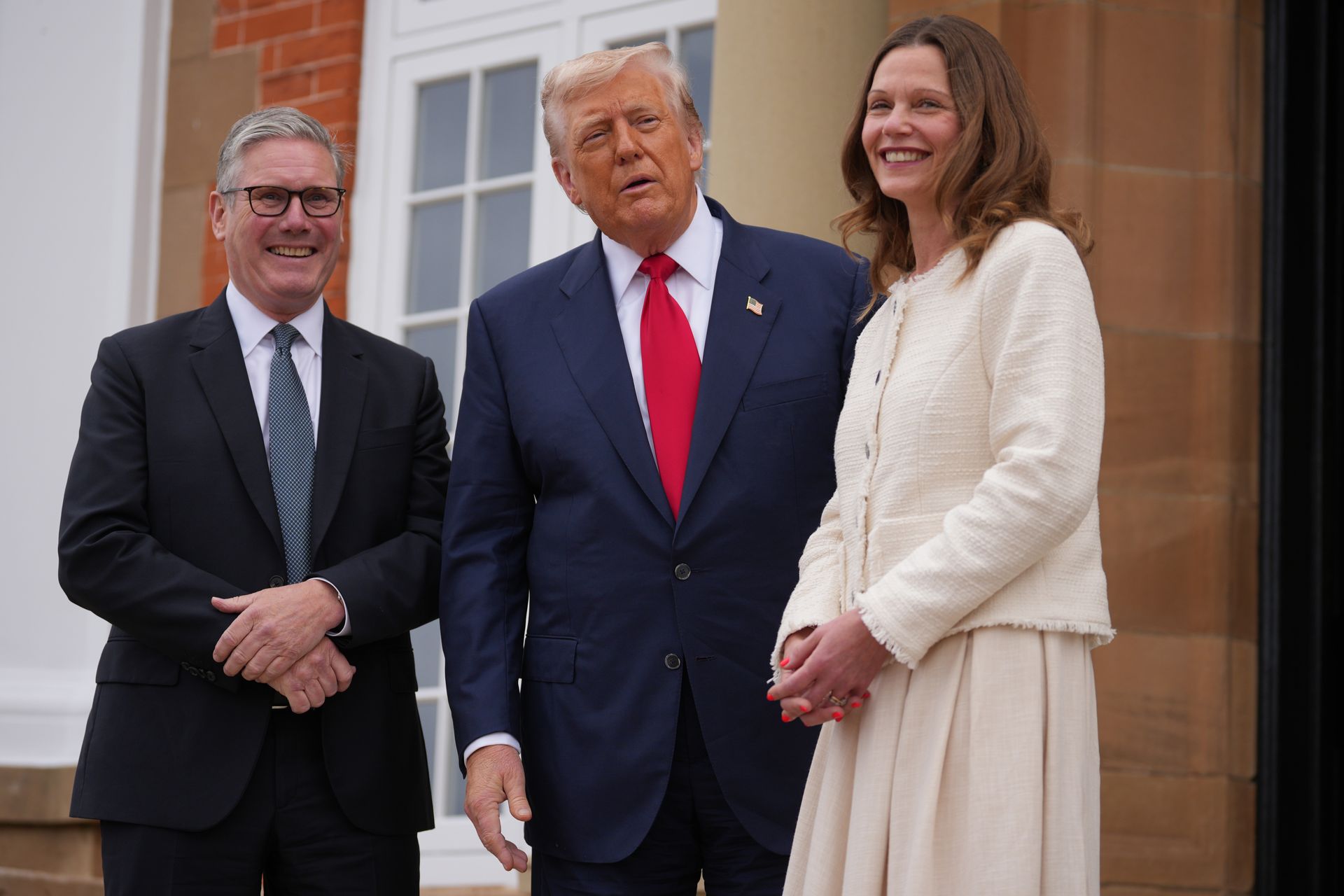'It hits their psyche hard' — Ukraine's drones throw Russia's airports further into 'chaos'

Passengers wait for their flights at Sheremetyevo International Airport outside Moscow, Russia, on July 28, 2025. (Tatyana Makeyeva / AFP via Getty Images)
As Ukraine continues its long-range drone campaign, major airports across Russia have been repeatedly forced to suspend operations, reroute flights, and ground aircraft.
In July alone, nearly every day of the month, at least one formally operating Russian airport shut down temporarily.
Hundreds of domestic and international flights were canceled or diverted, stranding thousands of passengers and exposing a vulnerability the Kremlin can no longer conceal.
"This hits the morale of the Russian people," Ivan Stupak, a military commentator and former officer of Ukraine's Security Service (SBU), told the Kyiv Independent.
"They're used to seeing the war only through YouTube — so they just turn off YouTube, and suddenly it feels like the war is not real.
"But with what we're doing, we're sending a clear message — the war is very real, and your comfort lies in our hands."
Ukraine targets airspace to rattle Russians
According to Russia's Federal Aviation Agency (Rosaviatsia), flight restrictions have been imposed at least 489 times since the beginning of 2025, affecting 43 airports.
During July 19–20 alone, 134 aircraft were diverted to alternate airfields. Moscow's major hubs — Sheremetyevo and Vnukovo — handled 78 and 45 of those diversions, respectively.
According to Stupak, Ukraine designs drone flight paths to pass within 100–150 kilometers (62 to 93 miles) of major airports, forcing Russian air traffic controllers to activate emergency protocols.
"Chaos in the transportation infrastructure is a side effect of Ukraine's strikes deep inside Russia," Stupak said.
"Planes are diverted, runways are cleared, and passengers are stuck for hours."

Strategic shift in drone warfare
Ukrainian officials have previously described the aviation disruptions as part of a broader campaign to destabilize Russia internally.
"This is about the potential disintegration of Russian regions and the weakening of internal control," Serhii Bratchuk, spokesperson for the Ukrainian Defense Army's Southern Division, told the Kyiv Independent in May.
"Flight schedules get disrupted, aircraft are out of position, and everything falls apart."
The drone attacks also show that the situation is slipping beyond Moscow's control, said Ivan Preobrazhensky, an exiled Russian political scientist.
"For years, Russia made billions from foreign aircraft flying over its territory. Some of that revenue vanished with sanctions — now it's losing even more, and that trend will only continue," Preobrazhensky said.
"It's no longer a safe country."
In a country where remote regions depend heavily on aviation, the consequences go beyond missed flights.
"This country can't function as a unified space without a working aviation sector," Preobrazhensky said. "And that sector is already in deep trouble (due to sanctions). The problems are only going to grow."
Elites, economy under pressure
While the closures impact ordinary travelers, they also strike at the Russian elite.
"Russian governors and ministers also can't take off or land in Moscow. They have to change their travel routes," Stupak said.
On July 28, Kremlin spokesperson Dmitry Peskov's flight to St. Petersburg was grounded for several hours due to drone activity over Leningrad Oblast.
Preobrazhensky noted that the impact on the Russian middle and upper classes, who have retained access to international travel despite sanctions, is particularly acute.
"Now these people are losing that opportunity, and they feel it acutely," he said. "Many of them try to live as if the war doesn't exist, but reality keeps intruding — and that hits their psyche hard."

The financial toll is mounting as well, added Stupak.
"Flight schedules get disrupted, aircraft are out of position, and everything falls apart," he said. "There are losses — for airlines, for insurance companies. It all adds up."
Russia's options narrowing
Despite the growing disruptions, Russia is unlikely to fully close its airspace, according to Stupak.
"They might unload Moscow-bound airports by 50% and redirect flights to places like St. Petersburg or northern regions," he said.
"In more vulnerable areas like Kursk, Bryansk, or Belgorod, they may suspend all flights entirely, telling passengers to travel by road or rail instead."
But Stupak emphasized one key point: "Of course, Moscow will keep flying."
Military logistics still intact
While civilian airports are heavily affected, Preobrazhensky said Ukraine's drone campaign has not yet crippled Russia's logistics network, particularly military transport.
"There's a clear priority — as long as transport aviation, especially military, keeps flying, the system is considered to be holding," he said.
Even airports marked as "closed" for civilian flights continue to receive military aircraft transporting troops, supplies, and equipment.
"For the Kremlin, there are still no significant losses, at least for now," Preobrazhensky said.
Note from the author:
Hi, this is Tim. Thank you for reading this article. The Kyiv Independent doesn't have a wealthy owner or a paywall. Instead, we rely on readers like you to keep our journalism funded. If you liked this article, consider joining our community today.










